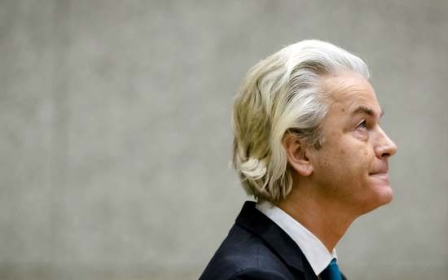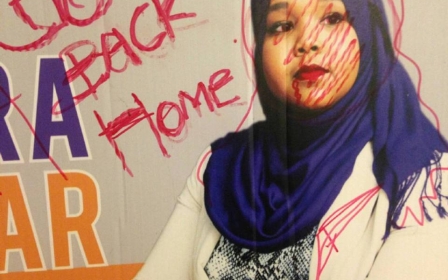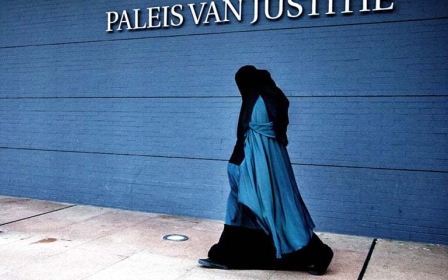Dutch MP Geert Wilders found guilty of discrimination
Anti-Islam Dutch MP Geert Wilders was found guilty on Friday of discrimination against Moroccans, but acquitted of hate speech in a closely watched trial ahead of next year's key election.
In their verdict, the judges said "the inflammatory character of the way in which the statements were made incited others to discriminate against people of Moroccan origin".
Rather than hurting the controversial lawmaker, observers say his trial has boosted his popularity among Dutch voters
But they added that there was "insufficient evidence" that his words at an election rally in 2014 amounted to incitement to hatred.
The judges also dismissed the prosecution's request to impose a 5,000 euro fine on the far-right MP, whose Freedom Party (PVV) is eyeing an upset victory in the March 2017 polls.
"In this case, the most important question is whether Wilders has crossed a line. This judgment has answered that question," the judges said in their verdict.
"Therewith, the chamber finds that justice has been done. Consequently, no punishment is imposed."
Wilders, 53, immediately gave notice that he intended to appeal his conviction, as he believed it was "a big loss for freedom of speech".
MORE: Wild, wilder, Wilders: Meet Holland’s very own Trump
The most recent opinion polls predict the PVV will top the vote, saying it could seize 34 seats in the 150-seat lower house of the Dutch parliament, some 10 seats ahead of his nearest rival, Prime Minister Mark Rutte's Liberals.
Rather than hurting the controversial lawmaker, observers say the trial has boosted his popularity among Dutch voters, worried about the influx of immigrants and driven by Eurosceptic sentiments.
Amid a string of populist victories in Europe and the November election of Donald Trump as the next US president, the outcome of the Dutch vote will be keenly watched.
Wilders made comments about Moroccans
The three-week trial of Wilders had focused in particular on a statement made at a 2014 local government election rally in The Hague, when he asked supporters whether they wanted "fewer or more Moroccans in your city and in the Netherlands".
When the crowd shouted back "Fewer! Fewer!" a smiling Wilders answered: "We're going to organise that."
Prosecutors told a three-judge bench they had taken Wilders to court because "racist remarks need to be stopped" after police received 6,400 complaints about his comments. "Wilders singled out an entire group of citizens without making any distinction," the judges ruled.
'This statement can be regarded as affecting the dignity of this group as a whole. It is insulting for the entire group'
- Dutch prosecutor
"This group has less rights to reside in the Netherlands. Therewith, this statement can be regarded as affecting the dignity of this group as a whole. It is insulting for the entire group."
Throughout their case, prosecutors quoted numerous examples of Dutch-Moroccans who said they felt like "third-rate citizens" and that even "children are afraid" because of the politician's statements.
Wilders boycotted most of the high-profile trial, and refused to appear in court for the verdict.
Just before the judgment was read, he said in a tweet: "Whatever the verdict, I will continue to speak the truth about the Moroccan problem, and no judge, politician or terrorist will stop me."
Wilders' promises if elected
If elected as the lowlands country's new prime minister, Wilders has vowed to confiscate Qurans, close mosques and Islamic schools, shut Dutch borders and ban migrants from Islamic countries, among a raft of other anti-Islam moves.
His views have seen him receive death threats including from terror groups including the Islamic State group and al-Qaeda. He is guarded at all times and called the "best protected man in the Netherlands".
Political observers say Wilders will benefit either way from the verdict amid the publicity the trial has generated.
However, the conviction will mean he has a criminal record, which could affect his ability to travel, popular daily tabloid Algemeen Dagblad said.
New MEE newsletter: Jerusalem Dispatch
Sign up to get the latest insights and analysis on Israel-Palestine, alongside Turkey Unpacked and other MEE newsletters
Middle East Eye delivers independent and unrivalled coverage and analysis of the Middle East, North Africa and beyond. To learn more about republishing this content and the associated fees, please fill out this form. More about MEE can be found here.




